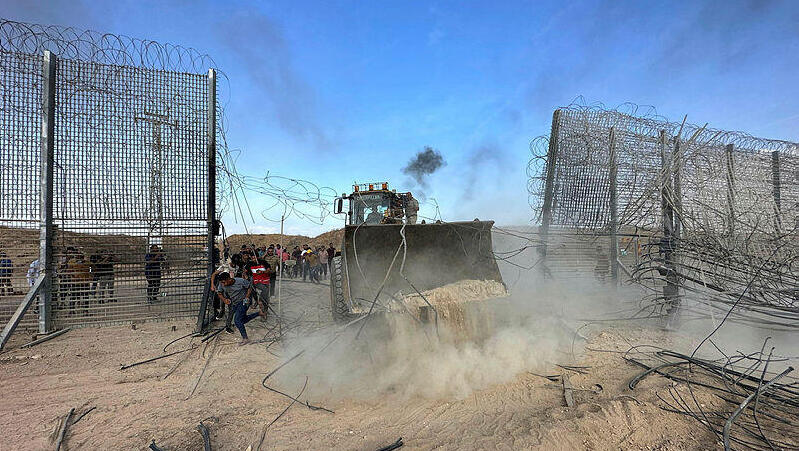Getting your Trinity Audio player ready...
In the bustling landscape of global venture funding, Israel's diminishing share raises red flags, signaling a potential crisis for the nation's economy. As Q1 2024 figures reveal a surge in global investment, Israel is heading in the opposite direction.
Even as growth equity begins to recover globally, Israeli VC investments peaked at $29 billion in 2021 but then dropped significantly to $17 billion in 2022, $7.3 billion in 2023, and are currently (in 2024) on a $5 billion run rate.
While the global economy shows significant signs of recovery, Israel's trajectory is lagging. The disparity becomes evident when comparing IPO figures. In Q1 2024, the United States witnessed IPOs soar to $5.67 billion, a 100% increase from the previous year. Similarly, Europe experienced a notable surge, with IPOs escalating from $1.3 billion to $8.1 billion (720% growth). In contrast, Israel reported zero IPOs in 2024, a decline of 100%, indicating that while other regions are recovering, Israel is not.
Beneath the surface, troubling trends from the largest foreign investors tell an even more alarming tale. In 2021, Japanese investment in the Israeli tech sector surged to roughly $3 billion. SoftBank Group Corp., a Japanese multinational holding company headquartered in Tokyo, Japan, engaged in a significant number of deals in Israel, with twelve in 2021, four in 2022, and three in 2023. Since October 7, SoftBank has suspended deals in Israel but has closed nine deals in the US, Europe, and Canada.
Similarly, Koch Investments, based in Wichita, Kansas, has refrained entirely from engaging in deals within Israel since October 7, mirroring the Japanese trend. Despite closing four deals with Israel in 2023 (and additional deals worth billions of dollars prior to 2023), Koch has redirected its focus since October 7, closing four substantial deals outside of Israel in the United States, Europe, and Canada and zero in Israel.
Rapid decline in foreign capital since October 7
Before October 7, 2023, Israel witnessed a steady increase in passenger traffic. However, the aftermath of geopolitical tensions heightened by Iran’s attack has dealt a severe blow to the nation's inflow of foreign visitors. Despite efforts to resume normalcy, airlines like United (the most important travel proxy for American businesspeople coming to Israel) continue to suspend flights to Israel. Since October 7, United maintained flights to Israel only during a brief period in March and April 2024.
The 2023 Annual Report on the State of High-Tech highlighted that Israeli high-tech accounted for 18% of the country's GDP and nearly half of its exports. Over the past decade, the sector's growth has been exponential, cementing its pivotal role in the nation's economic landscape. Understanding the importance of the sector to the Israeli economy, the Israeli government established the "Yozma (Initiative) Fund”. The fund aims to co-invest alongside Israeli institutional investors in local venture capital funds, expand funding, and increase local capital's influence and stability in the high-tech sector.
By reducing dependence on foreign capital, the fund seeks to enhance stability, especially during crises. However, according to discussions with the CIOs of leading institutional investors, there is little if no interest in participating in the 30% free leverage program offered by the Yozma Fund.
Despite government efforts to jump-start the tech sector, there has been a rapid decline in foreign capital since October 7. According to recent estimates, there is only $200mm-$300mm of dry powder (cash) left in Israel to support the vital tech sector (out of the $2.4BN raised in the past five quarters).
Nonetheless, efforts have been made by venture capital firms and foreign investors to increase capital flow into Israel. Several firms have launched their own emergency fund initiatives, offering investment opportunities to their investors (without the usual management fee structure). Varana Capital’s Chai Fund, the largest October 7 emergency fund, has raised $30mm. Other funds have raised more modest amounts, which have already been largely or completely deployed. While commendable, the amounts raised are insufficient to sustain the current tech sector in Israel.
How to avoid the impending crash
We have spoken to and are in constant communication with numerous foreign and local investors. We have also been involved in discussions with the Government and Government-backed investment entity, The Israeli Innovation Authority. The situation is terribly bleak. Foreign investors have disappeared from Israel, and the Government funds dedicated to investment post-October 7 are not sufficient.
We must get investors back into Israel to avoid this impending crash. We believe that there are significant opportunities, in fact, the most attractive deals we have seen anywhere since the Global Financial Crisis, where there was much more financial and business risk than today in Israel. Our opportunity fund is still open to investors and, while gaining significant traction, cannot alone fill the hole of many billions of dollars missing from the market due to the flight of other foreign investment firms.
Without sufficient funding, many of Israel’s emerging technology companies may be doomed
Jonathan Nesher, a US-based M&A and Corporate Finance partner with the international law firm Bryan Cave Leighton Paisner LLP (BCLP), also expressed his concern for Israel’s emerging companies, stating that “there has been a noticeable decline in cross-border transactions with Israeli companies. Stabilization and positive resolution of the current geopolitical issues are crucial to the survival of Israel's emerging company sector. Companies cannot survive in limbo indefinitely.”
 Ezra Gardner
Ezra GardnerIsrael's downward trajectory of incoming foreign capital highlights a critical moment for the nation's economic future. The contrast between the robust recoveries seen in the United States and Europe and Israel's continuing decline underscores the urgency of the situation. Addressing this issue requires concerted efforts from policymakers, investors, and the tech ecosystem to reinvigorate the nation's investment appeal. Without swift and strategic action, Israel risks falling further behind in the competitive global market, jeopardizing its position as a leading innovation hub.
Ezra Gardner is the Co-Founder and CIO of Varana Capital. He sits on the Boards of Directors of multiple public and private companies, primarily in Israel
Varana Capital Founded in 2012 by Philip Broenniman and Ezra Gardner, Denver-based Varana Capital, LLC, focuses on investing in and actively engaging with public and private companies worldwide. The firm partners with visionary leaders to foster global impact. For more information, please visit Varana Capital's website or connect with us on LinkedIn or by email.




